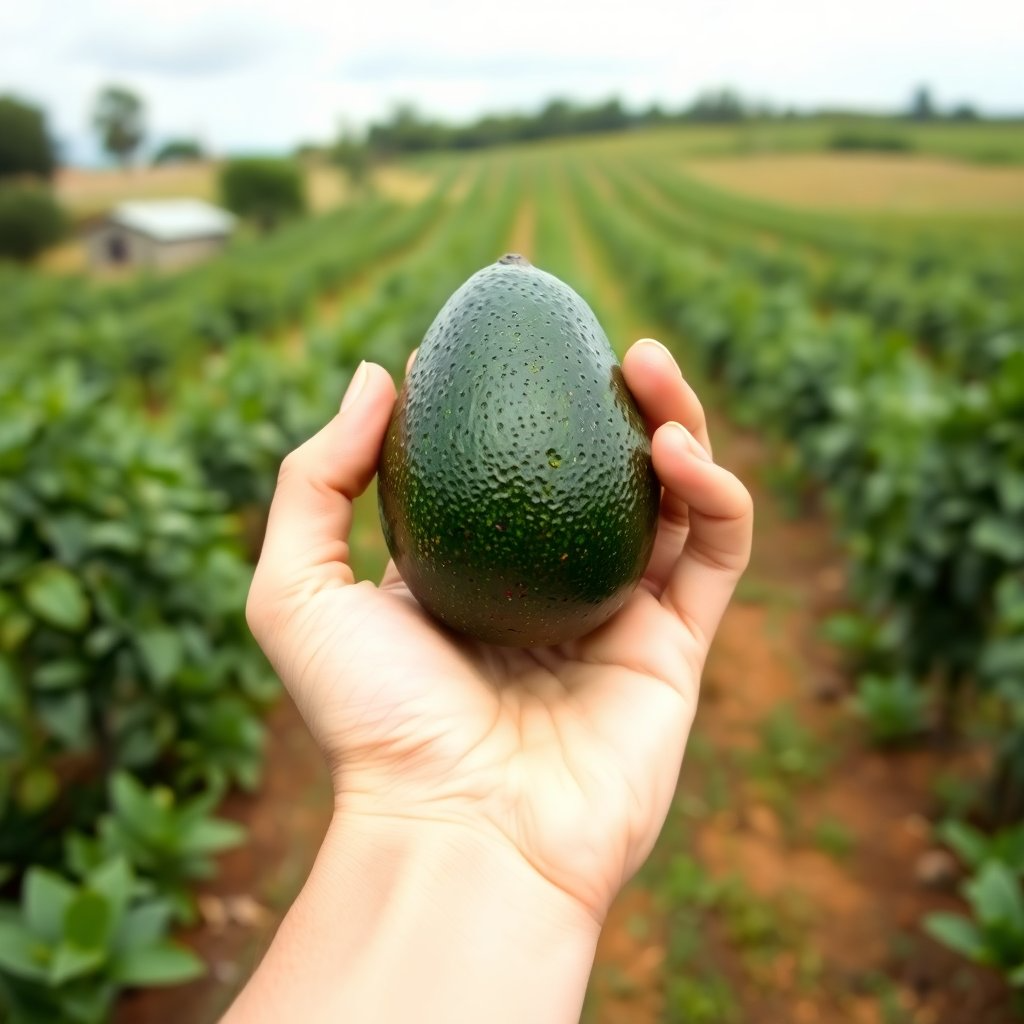“Benefits of Organic Avocados”
Benefits of Organic Avocados: A Nutrient-Packed Superfood
Avocados have long been celebrated as a nutrient-dense superfood, and for good reason. Packed with vitamins, minerals, fiber, and healthy fats, avocados are a versatile fruit that can be enjoyed in a variety of dishes. However, when it comes to selecting avocados, the choice between organic and conventional options can make a significant difference. In this blog, we’ll explore the numerous benefits of organic avocados and why they should be a staple in your diet.
What Are Organic Avocados?
Before delving into the benefits, it’s important to understand what makes an avocado “organic.” Organic avocados are grown without the use of synthetic pesticides, herbicides, or fertilizers. Instead, organic farming relies on natural methods such as crop rotation, organic compost, and natural pest control. These practices not only ensure the health of the environment but also result in a cleaner, healthier fruit for consumption.
1. Rich in Healthy Fats
One of the most notable benefits of organic avocados is their high content of healthy fats, particularly monounsaturated fats. These fats, which are also found in olive oil and nuts, are known for their heart-healthy properties. Consuming monounsaturated fats in moderation can help lower bad cholesterol (LDL) levels and reduce the risk of heart disease.
Unlike trans fats and saturated fats, the monounsaturated fats in avocados benefit your heart and overall health. These healthy fats help reduce inflammation, support brain function, and enhance absorption of fat-soluble vitamins A, D, E, and K.
2. Packed with Nutrients
Organic avocados are a rich source of essential nutrients. Here are some of the key nutrients found in avocados:
- Vitamins: Organic avocados are high in vitamin K, which is essential for bone health and blood clotting. They are also packed with B-vitamins such as B5, B6, and folate, which play a crucial role in energy metabolism, brain function, and reducing the risk of birth defects.
- Minerals: Avocados are an excellent source of potassium, a mineral that helps regulate blood pressure, muscle function, and fluid balance in the body. In fact, avocados contain more potassium than bananas, which are often hailed as the go-to source for this vital nutrient.
- Fiber: Organic avocados are high in fiber, which is essential for digestive health. Fiber aids in digestion, promotes regular bowel movements, and helps maintain a healthy gut microbiome. Furthermore, fiber can help regulate blood sugar levels, reducing the risk of type 2 diabetes and supporting weight management.

3. Improved Heart Health
The healthy fats, fiber, and antioxidants in organic avocados support a strong and heart-healthy diet overall. Research shows avocados help lower LDL cholesterol levels while boosting HDL, the heart-protective “good” cholesterol.
They’re also rich in antioxidants like vitamin E and carotenoids, which help shield the heart from damage.
These antioxidants fight oxidative stress and inflammation, key contributors to cardiovascular problems and chronic disease risk. By reducing free radicals, avocados may lower the chance of heart attacks, strokes, and other heart issues.
4. Promotes Skin Health
Organic avocados benefit both your internal health and your external beauty when included in a balanced diet. They contain healthy fats and vitamins, especially E and C, that nourish and hydrate the skin effectively.
Vitamin E protects the skin from free radicals, pollution, and UV rays that can cause premature aging.
It also helps the skin retain moisture, reducing fine lines and supporting a smooth, youthful appearance.
Vitamin C plays a key role in collagen production, boosting skin elasticity, firmness, and overall texture.
Eating avocados may reduce skin inflammation, fight acne, and promote a clearer, more radiant complexion. You can also apply mashed avocado as a face mask or use its oil as a natural moisturizer.
5. Supports Weight Management
Despite common myths, avocados support weight management due to their high fiber and healthy fat content. Fiber and fats work together to promote fullness, helping reduce cravings and prevent unnecessary overeating throughout the day.
Monounsaturated fats in avocados aid metabolism, supporting fat burning and the maintenance of lean muscle mass. Adding organic avocados to meals can help control appetite and make it easier to maintain a healthy weight.
Research shows people who eat avocados regularly often have lower body weight and reduced risk of obesity. This makes avocados a smart, sustainable food choice for anyone aiming to manage or lose weight naturally.
6. Enhances Nutrient Absorption
Organic avocados are nutrient-rich and help your body absorb more nutrients from the other foods you eat. Their healthy fats boost absorption of fat-soluble vitamins like A, D, E, and K during digestion. These essential vitamins support important functions like immunity, bone strength, healthy skin, and clear vision daily.
When eaten with carotenoid-rich foods like tomatoes or carrots, avocado fats boost antioxidant absorption significantly. This enhanced absorption helps your body make the most of nutrients found in colorful vegetables and fruits. Adding organic avocados to meals is a smart way to increase nutrient intake and support overall health naturally.
7. Supports Eye Health
Organic avocados are rich in lutein and zeaxanthin, two antioxidants known to support and protect eye health. These powerful compounds shield the eyes from harmful blue light and oxidative damage caused by environmental stressors. They also help lower the risk of age-related macular degeneration, a common cause of vision loss in aging adults.
Lutein and zeaxanthin in the retina help filter harmful light and protect the eye’s delicate cells. Consuming foods rich in these antioxidants, such as organic avocados, can help maintain healthy vision and protect against eye diseases.
8. Environmental Benefits of Organic Avocados
In addition to the personal health benefits, choosing organic avocados is also better for the environment. Organic farming practices prioritize sustainability and biodiversity, which helps maintain healthy ecosystems and soil. By avoiding synthetic chemicals, organic farming helps protect local wildlife and reduces pollution in waterways.
Furthermore, organic farming typically uses fewer resources such as water and fossil fuels, making it a more eco-friendly option. By supporting organic avocado farming, you contribute to the preservation of natural resources and the promotion of a healthier planet.
9. How to Incorporate Organic Avocados Into Your Diet
Now that you’re aware of organic avocados’ health benefits, here are simple ways to add them to your diet. Fortunately, avocados are incredibly versatile and can be enjoyed in a variety of ways:
- Guacamole: Mash avocado with lime, garlic, onion, and cilantro for a tasty guacamole dip..
- Smoothies: Add a ripe avocado to your morning smoothie for a creamy texture and a boost of nutrients.
- Avocado Toast: Spread mashed avocado on whole-grain toast and top with your favorite toppings, such as tomatoes, eggs, or leafy greens.
- Salads: Slice avocados and add them to salads for a nutritious and satisfying meal.
- Sushi Rolls: Use avocado as a filling for sushi rolls for added flavor and texture.








